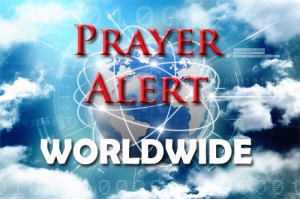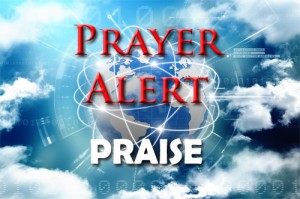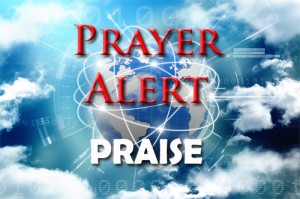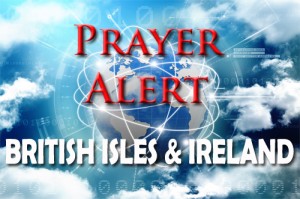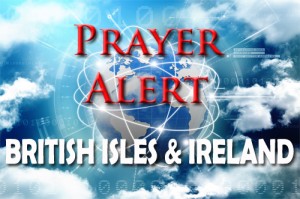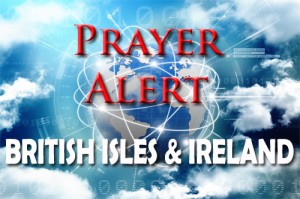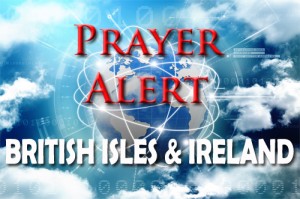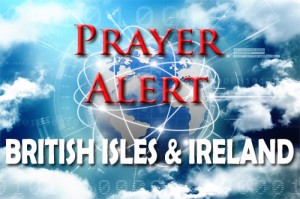
David Fletcher
David Fletcher is Prayer Alert’s Editor.
He is part of a voluntary team who research, proof-read and publish Prayer Alert each week.
If you would like to make a donation towards our running costs, please click here.
Islamist parties in Iraq are shedding their religious platforms to focus on reform in the campaign for upcoming elections in May, and are also allying with secular parties. Out of 200+ Islamist parties registered with the independent electoral commission, only ten have names explicitly invoking Islam. This development clearly shows the overall decline in Islamic movements, both Shiite and Sunni, compared with previous elections in which Islamist parties accounted for more than half of the registered groups. Many Iraqis blame political Islam for the tragedies and corruption plaguing their country, as Islamists have held the reins of power since 2005. At present Shiite political power influences state institutions and there is ongoing support from Iran, so we need to pray for God’s intervention in the elections.
Donald Trump has enthusiastically expressed personal admiration for notorious authoritarian leaders. Recently he sent a message to Philippines president Duterte: ‘I want to congratulate you because I am hearing of the unbelievable job on the drug problem.’ Duterte’s crackdown on the drug trade has included extrajudicial killings of 7,000+ people. On President al-Sisi of Egypt, Trump said, ‘He has been very close to me from the first time I met him. He’s done a fantastic job in a very difficult situation’. Al-Sisi has a stranglehold on Egypt’s political system, and is actively crushing any civic groups or media outlets that criticise his rule. Trump also described the president of China as ‘a good person who wants to do right, representing his people’. China’s one-party state aggressively censors the internet, persecutes ethnic and religious minorities, bans all political opposition, and recently cracked down on human rights lawyers attempting to defend the victims of such abuses.
Volcanoes are erupting and ground is shaking in Indonesia, Japan, Alaska, the Philippines and eastern Russia. On 23 January, 56,000+ residents in the Philippines were evacuating their homes in anticipation of a major eruption by Mount Mayon volcano. On the same day a volcano north-west of Tokyo also erupted, a magnitude 6.1 earthquake occurred southwest of Jakarta, and another hit Alaska, 173 miles from Kodiak. On 25 January there was a magnitude 6.2 earthquake off Russia's east coast. Indonesia’s Mount Agung continues to spew ash. Pray for all who are currently evacuated or in the process of cleaning up after these events. See also
Last week we prayed for God to soften President Macron’s heart and prompt him to help refugees still living rough in Calais while officials take months to process their claims. On 19 January Mr Macron and Theresa May signed a treaty designed to reduce the backlog of migrants by greater cooperation. The agreement will strengthen an accord known as Le Touquet, signed in 2003, which moved the British border to France. This will remain in force, but Macron said France will no longer be Britain’s ‘coastguard’ without concessions from the UK to help ease the crisis. Under the new, legally binding treaty, Britain will speed up ways of accepting legitimate asylum seekers currently stranded in Calais, including those seeking to re-join families in the UK and unaccompanied children.
David Barker and Stephen Wan were preaching the gospel in Camberley in December. Hecklers gathered and claimed that the preachers said ‘homosexuals are going to hell’ and ‘man cannot lie with man’. The preachers deny saying this. David spoke about the good news of Christmas, quoting Romans 3:23, ‘All people have sinned and fallen short of the glory of God’, and John 3:16. Stephen explained Jesus was called ‘Jesus’ because he would save his people from their sins, and he came into the world to atone for the sins of all mankind. A heckler accused him of preaching hate and asked about homosexuality. Stephen explained the Genesis creation story, adding that ‘marriage is an institution ordained by God for the purpose of procreation’. The two men were questioned by the police, but with help from the Christian Legal Centre, all charges against them were dropped.
In 2016, 350 Church leaders gathered to talk about and tackle the issue of pornography in their congregations and communities. Since then a move to combat pornography in the Church has grown. The CARE organisation sees the need for the Church to tackle this issue head on, after research in 2014 showed 79% of men and 76% of women aged 18-30 watched porn at least once a month. A growing number of Christians are aware of the effects of pornography and addiction on both men and women. Pray for more leaders to hear about and attend these conferences, and learn how to address the immorality that is damaging on spiritual, psychological and relational levels. Pray for more Christian therapists to be trained. For the 2018 conference details, click the ‘More’ button.
Ex-army colonel Hamish de Bretton-Gordon became a volunteer in Syria and said, ‘I’ve never seen anything as horrific as what is going on in Ghouta. Its starving people live underground in cellars, caves and tunnels. Three times in the past four days chlorine bombs were dropped by Syrian forces. Outlawed by the Geneva Convention, the chlorine combines with water in the lungs to produce hydrochloric acid, which dissolves the lungs. When civilians are flushed out onto the streets, they face death from the barrel-bombs and high-energy explosives that rain down from Putin’s Russian jets and Assad’s aircraft. Water is contaminated. Hospitals are targeted in air strikes. Ghouta is the last bastion to hold out against Bashar al-Assad and its inhabitants are being bombed, gassed and starved into submission.’ He added, ‘Putin can do as he pleases, and there will be chilling consequences for Britain’s security unless we act.’
Following a meeting with the Prime Minister, the former education secretary, Justine Greening, left the Government, to be succeeded by Damian Hinds. The women and equalities portfolio will be held by Amber Rudd. These changes will give the Government the opportunity to review many of Ms Greening’s more extreme proposals before they begin to impact upon families: for example, using compulsory relationships education to teach children as young as five about same-sex marriage, and allowing anybody, whatever age, to choose their gender. It is not too late to halt either of these policies, nor is it too late for the Government to note the views of the 59% of party members who oppose same-sex marriage (according to a new YouGov poll).
Theresa May has appointed Tracey Crouch, the minister for sport and civil society, to head a government-wide group with responsibility for policies connected to loneliness. She will implement one of the main recommendations of a report by the Jo Cox Commission. The Government said it would develop a wider strategy on the issue, gather more evidence and statistics, and provide funding for community groups to start activities which connect people. Researchers say that nine million people often or always feel lonely; the prime minister said, ‘For far too many people, loneliness is the sad reality of modern life’. Pray for Social Services, churches, charities and community leaders to address loneliness endured by the elderly, carers, new parents, refugees and the bereaved. Pray for Ms Crouch and her team to have a specific God-given anointing for the new role they have been given. See also
There are around 13.8 million 18-34 year olds who fall into the category of millennials. The Church Army is releasing guidance on how to evangelise millennials as we face a lack of young people in the pews. Research based on observing twelve different approaches to mission and evangelism around the UK from a variety of church traditions suggests a way forward. 'The findings are really encouraging and suggest that mission with young adults, while challenging, is not as difficult as one might think,' said Dr Tim Ling, the Church Army's director of research. In the churches studied, at least sixty people became Christians, with a further 48 reporting that the church had helped them rediscover a lost faith. The report urged churches to create 'spaces where young adults can belong and feel part of a community before they believe'.

